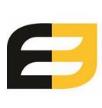Equal Education media statement: crucial questions for Basic Education Minister Motshekga on plans to mitigate against disruption to schooling during #COVID19 outbreak
26 March 2020
At 2pm today, Basic Education Minister Angie Motshekga will present her #COVID-19 related mitigation plans to South Africa.
The closure of schools is a necessary measure to reduce the spread of the Coronavirus, and ensure the safety of learners and teachers. However, it is clear that the closure of schools for an extended period of time will have dire consequences for many learners, particularly those from poor and working-class households.
Not only is teaching and learning being severely disrupted, but a significant number of learners are likely to go hungry.
While it is currently unclear how long schools will be closed for, it is likely that closures will extend beyond the initial date set for schools to reopen (mid April). In this period of uncertainty, it is vital that Motshekga provides learners and caregivers with the assurance that the Department of Basic Education (DBE) is rigorously planning for the best and worst case scenarios.
No intervention over this period will be foolproof. However, the Minister and the various education MECs need to think imaginatively and boldly about how to lessen the impact of school closures on learners.
Among the crucial questions that need to be put to Minister Motshekga are:
Have the DBE and the provincial education departments (PEDs) recognised that there is a strong possibility that closures will continue beyond 16 April and have they started planning urgently for various potential scenarios?
What alternative mechanisms are being explored to provide meals to the nine million learners dependent on the National School Nutrition Programme (NSNP)? Government must either implement the mass roll-out of food packages to distribution points in a coordinated and safe manner, or increase the financial allocation for the child support grant in order for parents, guardians and caregivers to feed children.
What plans are in place to enable learning while learners are not in school? What are plans for online and broadcast lessons? Will online learning materials be accessible without requiring data? And will hardcopy learning materials be provided? Given the massive inequality of access to resources such as computers, electricity, WiFi and learning space within homes, careful consideration needs to be given to the ways in which education resources and support can be made available to learners and their parents/guardians/caregivers through online and broadcast channels such as television, radio, Whatsapp and USSD channels. All websites that provide educational content, particularly all the content on the websites of the provincial and national education departments, must be free to access.
Are the DBE and PEDs considering the need to foster avenues for collective learning and support, while learners stay at home? Interactions with teachers and peers form an important part of learning. As part of the learning solutions it introduces, government must create alternative ways for these interactions to take place.
Is there a rigorous, multi-stakeholder consultative process underway to plan for when learners eventually return to school, which will lay out different scenarios for how the curriculum could be restructured to make up for lost time? Should closures persist over an extended period, government has to recognise that home learning initiatives are interim crisis measures. Therefore, there needs to be a coherent plan on how the curriculum will be restructured once learners return to school, to make up for lost time.
Issued by Jay-Dee Cyster, Equal Education Communications Officer, EE, 26 March 2020

